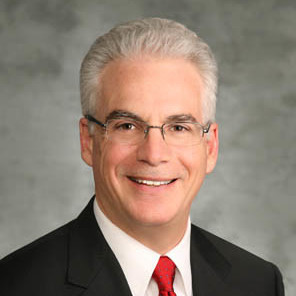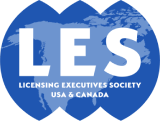Earlier this year, I authored an article in Viewpoints outlining some recent comments that LES USA & Canada submitted to the U.S. Department of Justice (DOJ) in response to proposed guidance on licensing negotiations and remedies for Standard Essential Patents (SEPs).
Below is a reissue of that blog piece, which originally appeared in the March 2022 edition of the Viewpoints newsletter.
In its comments to the DOJ, LES urged that innovation and economic growth are best served by agency guidance that balances the interests of both innovator and implementer and provides the business community with continuity and consistency. LES stated that the existing guidance, published in 2019 jointly by the DOJ, the U.S. Patent and Trademark Office (USPTO), and the National Institute for Standards and Technology (NIST), achieves that balance, and should be retained without revocation or substantive revision.
In December 2021, the DOJ issued its Draft Policy Statement on Licensing Negotiations and Remedies for Standards Essential Patents Subject To Voluntary F/RAND Commitments (“Draft 2021 Statement”). The Draft 2021 Statement would substantially revise the 2019 Policy Statement on Remedies for Standards Essential Patents Subject to Voluntary F/RAND Commitments (“2019 Statement”). In turn, the 2019 Statement adjusted guidance provided by the DOJ and PTO in the 2013 Policy Statement on Remedies for Standards Essential Patents Subject to Voluntary F/RAND Commitments (“2013 Statement”). Standard Essential Patent (SEP) licenses are generally subject to commitments to license the technology throughout the industry on terms that are Fair and/or Reasonable and Non-Discriminatory (F/RAND).
Historically, regulators have been focused on a perceived threat that SEP owners would exploit a patent position on essential technology to extract unfair terms by “holding up” potential licensees within the industry. However, SEP owners have countered those concerns by showing that abusive practices have been deployed by would-be licensees who refuse to negotiate in good faith, knowing that the F/RAND commitment might expose the SEP owner to enhanced scrutiny, and thus pressure to consummate a license. This tactic has been referred to as “hold-out.”
As the premier professional society of IP licensing executives, LES speaks for the entire innovation ecosystem. Our members are sophisticated professionals with extensive experience in all aspects of IP licensing. We represent both innovators and implementers, licensors and licensees, and diverse enterprises and institutions creating and commercializing innovations in all industries.
The innovation ecosystem generally, and IP licensing in particular, depend on a level playing field. Exchanging IP rights through orderly, sophisticated commercial transactions demands a predictable system of property rights that have identifiable and durable value for both licensor and licensee. Toward that end, any agency guidelines should defer to the industry, and in particular to the individual players in a given transaction. The strength of the U.S. economy is attributable to a free market economy that respects the freedom of parties to negotiate and enter into contracts that suit their respective purposes.
The industry is best suited to regulate itself. The LES Standards initiative is doing just that. LES is an ANSI-certified Standards Designating Organization (SDO) developing business process standards for ethical and prudent use of intellectual property and intellectual capital management. Rather than a top-down, regulatory approach, as proposed by the Draft 2021 Guidelines, LES supports an industry-led, bottom-up approach. It is LES’s position that the industry can come together, and through an orderly, open, inclusive process, develop consensus-based, voluntary standards that will balance the interests of the parties, and reduce opportunistic conduct by both sides in a given transaction. These standards offer the best hope for swiftly arriving at fair and equitable deals that will most efficiently bring ground-breaking technologies from lab to market.
The Draft 2021 Guidelines would take an overly prescriptive approach to how negotiations should be conducted, and what remedies should be available to the parties in the event those negotiations break down. Not only are the Draft 2021 Guidelines unduly prescriptive, but they also rest on a flawed premise that abusive conduct is more likely from one side of the table than from the other. Tilting the scales based on such assumptions is more likely to encourage gamesmanship than fair dealing on equal terms. In contrast, the 2019 Statement takes a more balanced approach that gives proper deference to the parties in structuring their deals, and to the courts in devising appropriate remedies based on the due process after the fact, and an equitable exploration of the facts. Thus, LES recommended that the DOJ retain the 2019 Statement without substantive revision or revocation.
Notably, U.S. Senators Tillis, Coons, and Hirono, in a bipartisan statement, likewise responded, urging caution in revising the 2019 Statement, and particularly questioned the timing of any such revision when both the USPTO and NIST lack Senate-approved leadership. LES supports this cautionary approach and favors a more balanced, deliberative approach than is found in the Draft 2021 Guidelines.
See the full letter here: https://tinyurl.com/2p8k6vtx
Learn more about the benefits of LES membership, and follow us on Twitter, LinkedIn and Facebook to stay up to date.
About the Author

Brian O’Shaughnessy, LES USA & Canada Senior Vice President of Public Policy

